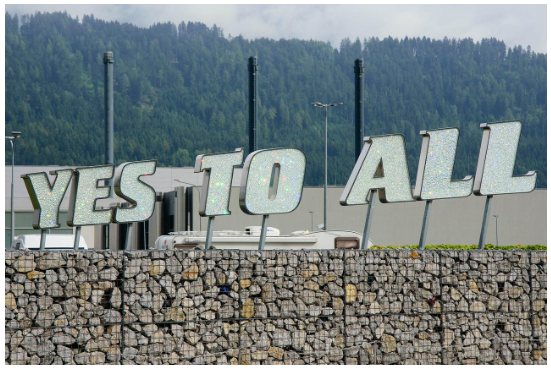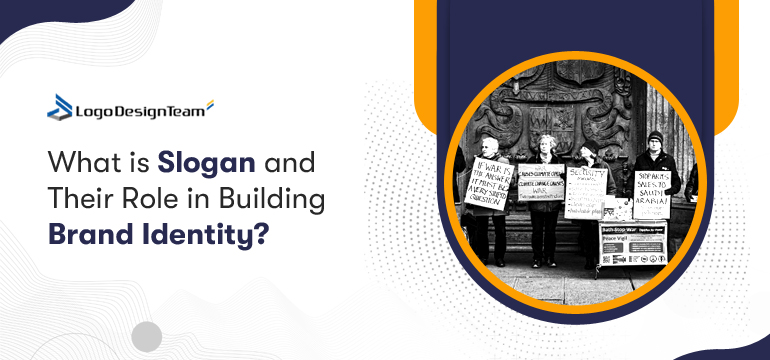The word “slogan” is derived from the Scottish Gaelic word “slogorne,” which means battle cry. In a commercial context, a slogan is a short, striking, memorable phrase or motto used to promote and advertise a brand.
A brand slogan is the key to the visual identity of a brand. Although the slogan may be the last thing people see about the brand or company, it is the first thing they remember. It leaves a warm and lasting impression. That said, in this post, we will discuss how a slogan can build brand identity. If you’re interested in finding out, then be sure to read till the end.

How Slogans Can Build Brand Identity?
Here are five ways slogans build a brand’s identity:
1) By Making Your Brand Rememberable and Reliable.
Slogans are more than just taglines or pieces of words advertisers create. They focus on a long-term, strategic game to play with customers’ minds. They make them believe your brand and products are reliable.
This is why brands keep updating their slogan until they find the perfect piece. For example, McDonald’s kept changing their slogans until they found “I’m lovin’ it” in 2003. They call this tagline an ideal representation of their brand.
2) Working as a Shadow of Your Brand Name.
The brand name itself can’t always deliver the brand’s message. Therefore, brand slogans come along with the brand name (and logo) to speak for it.
Slogans are sewn with the brand name and it is used everywhere along with it, creating a prominent identity. Therefore, we call a slogan shadow of the brand name that plays a key role in communicating the essence of a brand.
3) By Attracting Customers and motivating Management and Employees.
Slogans aren’t just the real meaning of brand or sales hooks; it is a brand’s DNA. It makes the management and employees work under the name, mirroring the brand’s commitment and loyalty. It works magic for the company.
4) By Working to Build Strong Relations with Clients.
Slogans strengthen the relationship between customers and the brand. It creates feelings and attracts people. This way, a person can relate to the brand’s message, which ultimately makes them inclined towards the brand.
5) By Making the Brand, Message, and Products Predictable
For example, the “Melt in your mouth, not in your hands” tagline suggests that the brand is about something edible. And since it says it melts in the mouth, not the hands, the brand sells chocolate, ice cream, or something similar.
How to Write a Good Slogan?
Below are tips to write a good slogan for your brand.

Keep it short and simple. A good slogan should deliver a complete message within 7 or 8 words. It must feel reliable while being easy to remember and say.
Make it unique and memorable: Your slogan should be special for your brand. Don’t use common sayings or words. Instead, get creative and write something unique that speaks for the brand and represents the real essence of the brand.
Highlight what makes your brand different and better than others: Your slogan should show the special value you offer.
Use an AI slogan generator to sharpen your slogan writing: Tell the tool about your brand, customers, the message you want to convey, etc., and it will provide you with ideas to start with. Work on those ideas further to find a perfect slogan.
Use strong, positive words: A slogan should relate to everyday life situations and touch your customers on an emotional level. So, use words that create a feeling of want or need in people. Active words work well.
Think about who will see or hear your slogan: Make sure it connects with your target customers. Also, you have to make it predictable.
Test your slogan ideas: Show them to some people first and get their feedback before using them everywhere. You may need to change it based on what they say.
Final Words
Whether a political party is running a campaign for election or a manufacturer marketing its product, they all need slogans. A slogan is used to promote a brand, build its reputation, and make it memorable.
Since a brand name alone cannot deliver the brand’s message, slogans are used in conjunction with the brand name for this purpose. They make brands memorable and reliable, motivate employees, attract customers, and strengthen client relations.




